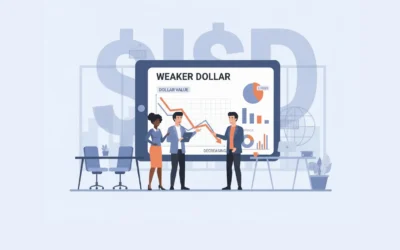When it’s time to sell your business, the process can feel overwhelming. Between valuation, taxes, and finding the right buyer, there are many moving parts. One of the biggest decisions you’ll face is who will guide you through the sale and help you get the most value for your business. Many business owners use either a business broker or an investment banker to lead the process, so understanding the difference is an important first step.
A business broker typically helps smaller companies, often those with a sale price under $15 million. They connect buyers and sellers, prepare marketing materials, and manage the sale process from start to finish, often to a broader or more public set of potential buyers.
An investment banker, on the other hand, usually works with larger companies. They handle more complex transactions, such as private equity sales, mergers, strategic sales, and typically provide a much more detailed financial analysis and robust team to manage the deal and structuring.
No matter the size of your business, the right advisor can help you sell on your terms, avoid costly mistakes, and get the most from your life’s work.
1. Find Someone With Experience (and Connections) in Your Industry
Your banker or broker should understand your type of business. Selling a restaurant is very different from selling a tech company. Someone familiar with your industry can identify the right buyers, highlight what makes your business valuable, and prepare you for what to expect.
Ask about their past deals. Have they worked with companies like yours before? How many transactions have they completed in your industry? Experience matters when it comes to getting results.
Investment bankers are known for keeping close contact with the M&A leads from large strategic buyers in key industries. Ask them about their ability to pick up the phone and get an audience with those folks.
2. Choose an Advisor Who Puts You First
Some bankers work for large institutions that may have their own goals and feel pressure to close deals by certain dates or under certain conditions. Independent advisors or boutique firms are often more focused on your outcome and less tied to internal sales targets.
You want a professional who listens to your goals, not just someone eager to close a deal. The best advisors act as partners, helping you understand your options and guiding you toward the best outcome.
For more insights into the different kinds of buyers that may be interested in your business, read our article The 6 Types of Buyers You Need to Know Before Selling Your Business
3. Make Sure Your Banker Works Well With Your Other Advisors
Your banker, accountant, and financial planner should communicate early and often. The way your deal is structured can have a big impact on how much tax you’ll owe. During the deal, there is an incredible amount of back and forth that happens on a business and personal level. It’s important that everyone on the team is fully engaged and responsive in order to march towards a successful closing.
At Southcoast Financial Partners, we often help clients coordinate these conversations so that the deal structure aligns with both short-term goals and long-term financial plans. Read more about how to pay less taxes when selling your business here.
4. Understand How They’re Paid
Most bankers or brokers earn a success fee, which is a percentage of the sale price, plus sometimes a small retainer. Be sure you understand what services are included and how the fees are calculated. Investment banker fees are usually tiered based on the size of the transaction, the key is understanding what goes into that transaction value number as deal points like working capital and other adjustments are worked in over time. Not all success fees are created equal and it’s important to know the true transaction costs.
Ask questions about incentives, timelines, and whether there are extra charges for marketing or legal coordination. Transparency about costs helps you make a confident choice up front.
5. Look for a Strategic Partner, Not Just a Deal Maker
A good banker helps you prepare your business before listing it for sale, and helps you position it for success in your market. That might include improving your financial statements, streamlining operations, repositioning core capabilities, and identifying value drivers that could raise your company’s value. You want a banker that really works to understand your business and gets in the weeds so that they can identify the key selling points and drive those home to potential buyers for most value.
This kind of preparation often takes months of effort, but it makes a big difference when buyers start making offers.
Final Thoughts
Selling your business isn’t just a financial event. It’s a transition that affects your goals, your family, and your future. The right banker can help you make the process smoother, less stressful, and more rewarding.
At Southcoast Financial Partners*,* we help business owners coordinate their advisory teams so that every part of the sale from valuation to tax planning works together toward the best possible outcome.
Ready to start planning your next move? Read more about our advisory services here, and contact our team of experts to learn how we can help you prepare for a successful sale.


